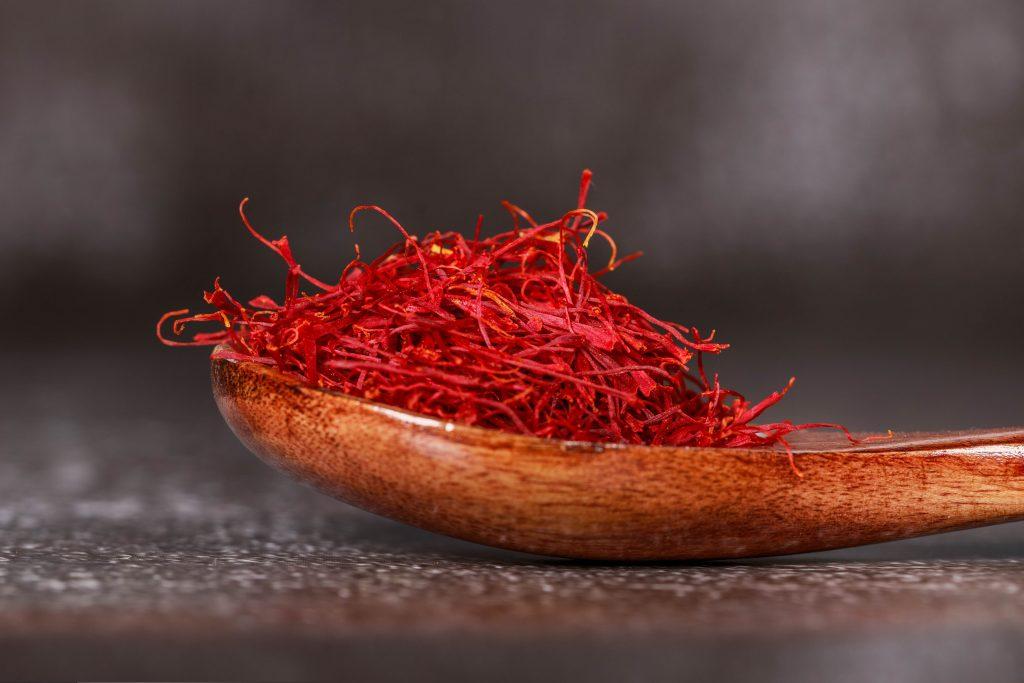Saffron is a spice that is derived from the flower of the Crocus sativus plant. The Saffron plant is native to Southwest Asia and resembles thread-like features called stigma. The stigmas are golden in colour and are dried and used to flavour foods and dye to colour foods and other products. It tastes bitter and has a strong, exotic smell.

Saffron has been used for centuries in traditional medicine and cooking. The complex process of collecting saffron accounts for its high price. Farmers start by manually separating the fine threads from each blossom. The threads are then heated and cured to improve their flavour. The cost and advantages of saffron are equivalent to the additional labour. This is why it is sometimes referred to as the king of spices.
The oral consumption of saffron has skin benefits, as it is believed to improve blood flow to the skin and promote healthy skin cell growth. Saffron has a number of potential benefits for the skin. Some of them are listed below.
- Brightening the Skin
Saffron is considered to help brighten the skin and improve its overall tone and appearance. This is due to the presence of antioxidants and other compounds that help to protect the skin from damage caused by free radicals. - Reducing Inflammation
Saffron has anti-inflammatory properties that may help to reduce redness, swelling, and irritation on the skin and treats skin allergies. This can be especially beneficial for people with sensitive or acne-prone skin. - Enhancing Collagen Production
Collagen is a protein that helps to keep the skin firm and youthful-looking. Some research suggests that saffron stimulates collagen production, which could help to reduce the appearance of fine lines and wrinkles. - Treating Hyperpigmentation
Saffron is also effective at reducing hyperpigmentation, or the darkening of certain areas of the skin. This can be caused by sun exposure, hormonal changes, or other factors. - Treats Acne
Studies have suggested that saffron has antimicrobial properties that can help to kill the bacteria that cause acne and heal the bacterial infection in your skin pores.


It is important to note that more research is needed to fully understand the potential benefits of saffron for the skin. If you are interested in using saffron for skin care, it is always a good idea to speak with a dermatologist or other medical professional.
